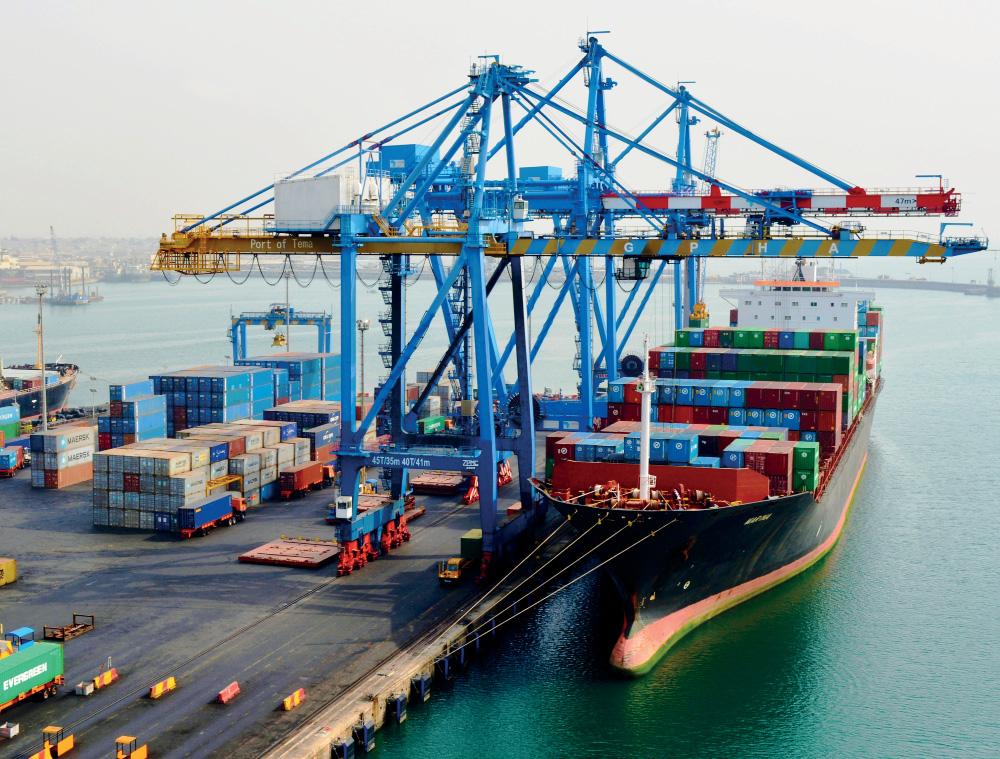
4 minute read
Recycling
BOLLORÉ PORTS’ GREEN TERMINAL
Aware of its impact on the environment, ten years ago Bolloré Ports implemented a process to reduce its greenhouse gas emissions and adopt a more ethical approach, says Olivier de Noray, ports and terminals managing director of Bolloré Ports
In this direction, in June 2021 we created and launched a labelling process called “Green Terminal” applicable to all the port concessions in our network. It is aimed at providing a response to all environmental issues by relying on a precise methodology validated by Bureau Veritas, one of the world’s leading companies in testing, inspection and certifi cation.
The involvement of private sector companies is crucial in responding to sustainable development issues. By integrating environmental, social and governance (ESG) criteria into our global strategy, our intention is to invest better and durably while delivering financial performance and a positive impact for all our stakeholders. This new label, which we pioneered, is based on simple fundamentals, in line with our CSR policy and is endorsed by Bureau Veritas, which has validated the overall process and is closely monitoring its implementation in our audited terminals.
In total, Bolloré Ports has created eight fundamental pillars that cover all current environmental concerns (1) Optimised management thanks to an environmental management system based on the ISO 14001 standard, (2) Eco-social
Credit: Bolloré Ports
commitment to local stakeholders, (3) Construction of infrastructures that comply with international standards, (4) Deployment of environmentally friendly handling solutions and equipment to support the energy transition, (5) Implementation of digital solutions, (6) Waste collection, recovery and recycling, (7) Water and air treatment and control and (8) Employee training in environmental best practices.
Recycling waste
Under the auspices of collect, recover and recycle waste (pillar 6), Bolloré Ports encourages implementing initiatives that favour a circular economy through a sustainable waste treatment strategy.
We have invested in specialised equipment and we are surrounded by qualified service providers who efficiently collect, recover and recycle the waste produced by the various users of the port (shipowners, operators, etc). As a result of these initiatives, the share of hazardous waste was reduced by 7% between 2019 and 2020.
As for used oil, which constitutes the main waste from terminals in Africa, it is treated specifically through a
8 Bolloré Ports
is taking a multi-faceted approach to reducing its environmnetal imprint
partnership with oil companies. It is recovered directly on site and then evacuated to specialised approved companies and cement manufacturers. In 2020, the production of used oil decreased by 25% compared to the previous year. Bolloré Ports is also working to continually increase the proportion of waste that is recovered. As a result, nearly 68% of used oil production was recycled in 2020.
With regards to Building infrastructure in accordance with international standards (pillar 3), every year, Bolloré Ports invests in the construction and modernisation of port infrastructure that is compliant with international standards and meets very strict eco-responsible criteria.
For each new construction or renovation project, almost 10% of the total budget is devoted to the environment with the exception of handling equipment. This includes recyclable construction materials with a low energy footprint, electrical installations, and internal systems such as heating, air conditioning and lighting to reduce energy costs.
Water treatment
Protecting water resources and controlling their consumption is one of the cornerstones of our strategy to promote ecoresponsible logistics under pillar 7.
To this end, we have deployed water management plans in the infrastructures which we are responsible for. They rely on specific measures that enable continuous monitoring of flow variations in order to identify any leaks. Additionally, efficient management systems have been installed to control water consumption.
Also, in order to meet environmental requirements, all new terminals are now equipped with their own systems for the reprocessing of wastewater and rainwater.
Bolloré Ports’ efforts in recent years are only the beginning of a long-term approach, in particular through our Green Terminal labelling process.
Thus, the latest results recorded show an encouraging reduction in the impact of our activities on the environment, which is expected to become even more marked in the years to come. In 2021, greenhouse gas emissions from scopes 1 and 2 have been reduced by 11%.

8 Bolloré Ports
has created eight fundamental pillars that cover all current environmental concerns
Recycling a case study
A new initiative has launched encouraging firms in the transport and logistics sectors
to reuse their packaging.
Bolloré Logistics created ‘REcycle’ to help customers check asset availability and manage stock worldwide using a dedicated web and mobile application.
To limit the use of single-use plastics, several types of packaging are used, each one having been rigorously selected. In particular, reusable thermic isolation kits for containerised transport as well as pallet covers are used for pre and post merchandise shipments.
“We created REcycle to help our clients to considerably reduce their single-use consumables,” said Odile Maarek, CSR director at Bolloré Logistics.
“As an example, using reusable thermic isolation kits for 100 shipments will reduce plastic use by 900 kg. Furthermore, it also complies with the new regulations that will ban single-use plastics in transport and logistics. In France it will be banned from transport & logistics activities by 2040,” she added.
The REcycle offer forms part of Bolloré Logistics’ CSR [Corporate Social Responsibility] Programme ‘Powering Sustainable Logistics’, launched in 2018 to provide sustainable supply chain solutions to its clients.
In line with its objective to reduce CO2

8 Bolloré Logistics’ REcycle initiative is
encouraging customers to swap to more sustainable packaging
emissions from transport services by 30% by 2030, Bolloré Logistics encourages customers to integrate sustainability into the management of their activities.







